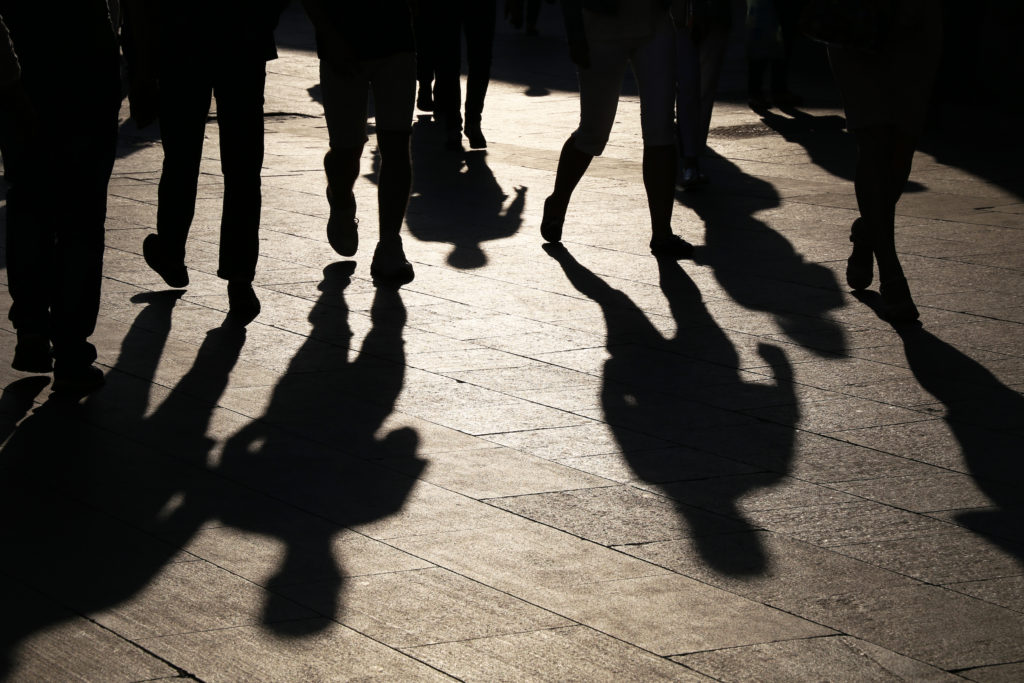Islamist extremism in the Netherlands
Islamist extremism in the Netherlands
Islamism in Europe
While jihadist terrorism is one of the core components of any global news broadcast, its subtler counterpart, Islamism, rarely rises to public consciousness. The distinction between these two forms of extremism has been well articulated by Maajid Nawaz, founder of the counter-extremism organisation Quilliam, who defines Islamism as the attempt to impose one particular version of Islam on the rest of society, whereas jihadism is the attempt to do that by violent means.[1] Judging from Maajid Nawaz’s definition, the relative lack of attention for Islamism may seem justified, because its ideology is basically non-violent. However, it is an unfortunate fact that imposing one particular interpretation of any religion, including Islam, on the rest of society is a theocratic project that goes against central European principles like the freedom of religion and the separation of church and state. Some Islamists organisations, such as Hizb ut-Tahrir, even desire to create an Islamic state (‘caliphate’), with a corresponding Islamic legal system (‘sharia’).[2] It should therefore give pause for thought that several Islamist movements, such as the aforementioned Hizb ut-Tahrir, and certain branches of the Muslim Brotherhood and Salafism, are active in Europe at this moment, some of which are more strident than others.[3] The question is how strong these movements actually are in Europe, what risks they might pose, and therefore how much attention they deserve. This article will look at the striking example of the Netherlands.
The Netherlands: Salafi influence from the Gulf states
In 2018 the Dutch government discovered that at least 30 Dutch Islamic organisations, or 10% of all Dutch mosques, have either requested or received extensive financing (up to millions of euros) from the Arab states of the Persian Gulf for many years. This may seem harmless, but the financing was found to be an explicit attempt to promote Salafism[4]: a fundamentalistic, intolerant and anti-democratic variant of Islam.[5] In four years time, the amount of Salafi mosques in the Netherlands grew from 13 to 27, and the number of Salafi preachers rose from 50 to 110, according to the Dutch anti-terrorist coordinator NCTV.[6]
Salafi schools in the Netherlands
Then, in 2019, research by the Dutch parliament revealed that young children at Dutch Salafi mosque schools were being taught that (1) people with a different religion or worldview (and also adulterers, apostates and homosexuals) deserve the death penalty, that (2) Muslims should distance themselves from Dutch society and its values of equality and freedom, and that (3) young Muslims should leave this “unbelieving country” to settle in an Islamic one.[7] At least 50 such schools were identified in the Netherlands alone. The mayor of Arnhem, Ahmed Marcouch, who has been fighting Salafism since 2004, has warned that these Salafi organisations not only radicalise young people, but can even become a portal to violent jihad, and should therefore be banned.[8] According to Marcouch, the Dutch government is already aware of hundreds of young people whom they consider to be dangerous.[9]
The Dutch parliamentary investigation into Salafi influences
This investigation was continued in February 2020, when the Dutch parliamentary commission started an official inquiry into the “undesirable influence” of these alleged Salafi organisations, and how to design effective measures to prevent these influences.[10] Multiple board members of Islamic organisations were questioned under oath. The commission also questioned the director of the Dutch General Intelligence and Security Service (AIVD), Dick Schoof, who said that the new generation of Dutch Salafi Muslims forms a serious threat to the Dutch rule of law in the long term, because “they are striving for a parallel society where the rules of the Dutch legal system do not apply.”[11] One of the reasons these motives are hard to detect, he said, is because these organisations use “facade politics”, where they espouse moderation in public, while they preach harsh extremism in private. Salafi influencers also seem te especially target vulnerable groups like children and refugees with their ideology.[12]
The prohibition of donations from “unfree countries”
Towards the end of February 2020, the Dutch government concluded that it wants to prohibit cash flows from “unfree countries” to mosques and other religious and social organisations, partly because their investigation revealed that the Salafi movement wants to interfere with Dutch politics. The government also wants Dutch Islamic organisations to make any donations from outside the European Union transparent to the public. Several of these organisations have already agreed to this request.[13] The legal proceedings to institutionalise these two new measures are currently underway.
Dutch Islamism on the rise
To sum up, the facts show that Islamism is a rapidly growing ideology in the Netherlands, partly due to funding from the Gulf states. It seems to pose serious long-term risks for the Dutch democratic rule of law, by creating parallel societies that reject fundamental European values and institutions. Especially worrying is the teaching of intolerance to young children. Islamism can also become a portal toward more violent, jihadist extremism, which could pose significant security risks for the Netherlands and other countries. Because Islamist movements tend to operate in very gradual and discrete ways, their risks tend to be difficult to assess, and only become apparent once the movements gain in strength. The Dutch example could stimulate other European countries to investigate the influence of Islamist ideologies in their societies, and to assess their impact earnestly.
Timo Pieters
Want to learn more about similar topics? Go to our Dashboard
[1] How to Beat Islamic State.
[2] Maajid Nawaz: how a former Islamist became David Cameron’s anti-extremism adviser
[3] Religious Trends in European Islam
[4] Salafism
[5] Geheime lijsten financiering moskeeën onthuld | Nieuwsuur.
[6] Geheime lijsten financiering moskeeën onthuld | Nieuwsuur.
[7] Grote zorgen Tweede Kamer na onderzoek salafistische moskeescholen
[8] Burgemeester Marcouch: ‘We hebben nu actie nodig tegen salafistische organisaties’.
[9] Burgemeester Marcouch: maak islamitische gemeenschap weerbaar tegen salafisme
[10] Zoektocht naar feiten over omstreden moskeefinanciering van start
[11] ‘Jonge generatie salafistische aanjagers is serieuze dreiging’
[12] Radicale islam
[13] Kabinet wil verbod op ongewenste financiering moskeeën en organisaties






